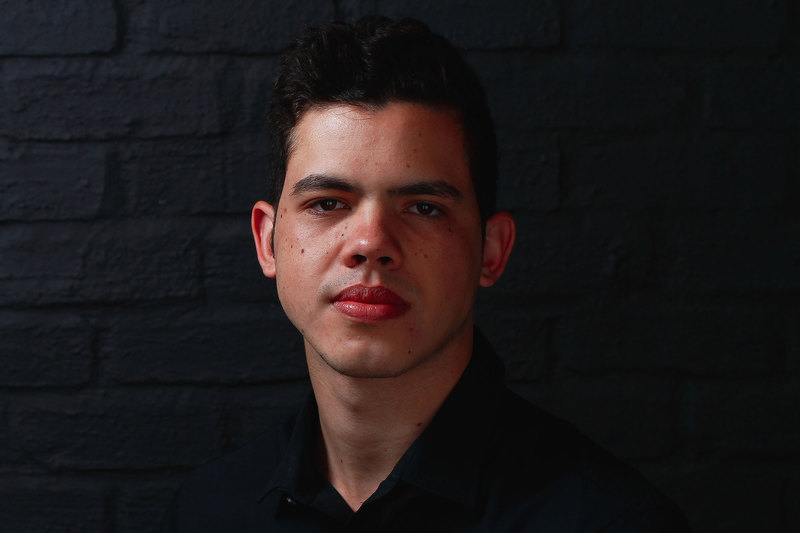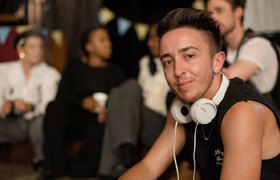UCT undergrad places second in national budget speech competition
26 March 2021 | Story Carla Bernardo. Photo Supplied. Read time 5 min.
University of Cape Town (UCT) fourth-year student Adrian Joseph was recently announced as first runner-up in the 2020 Nedbank and Old Mutual Budget Speech Competition in the undergraduate category.
The competition, which has been running annually since 1972, is “designed to motivate and incentivise South Africa’s most talented students in economics and finance to contribute to national debates on crucial issues”. According to the competition website, the prize-giving event, held virtually this year, coincides with the National Budget Speech, and the top three students in the undergraduate and postgraduate categories receive money to further their studies.
The undergraduate cohort was tasked with writing an essay on land redistribution in South Africa. The group of 20 semi-finalists was whittled down to 10 finalists. Joseph, who is studying towards a politics, philosophy and economics degree, placed second with his essay. In first place was Nelson Mandela University’s Ndivhuwo Malange and the second runner-up was the University of Johannesburg’s Suvira Singh.
“If our brightest young minds are given a platform, they have the potential to find real workable solutions to some of the major socio-economic challenges we face today.”
UCT News caught up with Joseph to find out more.
Carla Bernardo (CB): How did you find out about the competition and why did you decide to enter?
Adrian Joseph (AJ): I came across the competition while I was doing research on scholarship opportunities and decided that I could use the cash prize to help finance further studies. Broadly speaking, however, I decided to enter because I believe that if our brightest young minds are given a platform, they have the potential to find real workable solutions to some of the major socio-economic challenges we face today. For South Africa to fulfil its promise, it needs visionary leaders who have both a deep understanding of policy issues and a burning desire to make a meaningful contribution to our country’s future.
CB: What drew you to the essay topic?
AJ: The essay topic in the undergraduate category covered the controversial issue of land reform and it was the contentious nature of the question that interested me because I wanted to apply some of what I had learned at university to help address a contemporary policy problem. In my essay I discuss the failings of the post-apartheid land reform programme and prescribe [several] policies I believe will help to rectify these failings and develop an effective land reform programme. These include measures, such as mobilising civil society organisations and the private sector to help give emerging farmers the post-settlement support they need to be successful. Ultimately, I conclude that the transfer of agricultural knowledge in conjunction with the consensual transfer of land would best serve the interests of marginalised farmers and wider society.
“All it takes is one opportunity to positively change your life forever.”
CB: How did you feel placing so high in the competition?
AJ: I was honoured to receive the runner-up prize in the undergraduate category and grateful to God for His grace, to my friends and family for their support during the competition, as well as to Nedbank and Old Mutual for the opportunity. The theme for the competition this year was “Powering Africa’s Future Leaders” and having spent a week interacting with bright students from a wide variety of backgrounds, I can safely say that we have an abundance of innovative ideas and that all we need to do is harness that potential to change the course of South African history for good. If I could give one piece of advice to students, I would say that you must not, even for a moment, think that you are not qualified enough to apply [for] that job, go for that scholarship interview or write that competition essay because all it takes is one opportunity to positively change your life forever.
CB: Finally, why should other UCT students get involved in the competition?
AJ: There are excellent reasons why UCT students should enter the competition. Firstly, because the possibility exists that [this competition could result in] an idea or innovation that could change the course of South African economic history. [Secondly], there are generous cash prizes on offer. [Thirdly], the competition has become a major catalyst for many of the students who have entered it over the years, propelling them to meaningful careers in both the private and public sector. Some of the previous winners are now professors or doctors in economics serving in the academic field, while others are working at the National Treasury, [the South African] Reserve Bank and in top local and international organisations. More importantly, the competition provides an excellent opportunity for young people who are eager to develop innovative solutions that can help build a more inclusive society.
 This work is licensed under a Creative Commons Attribution-NoDerivatives 4.0 International License.
This work is licensed under a Creative Commons Attribution-NoDerivatives 4.0 International License.
Please view the republishing articles page for more information.










